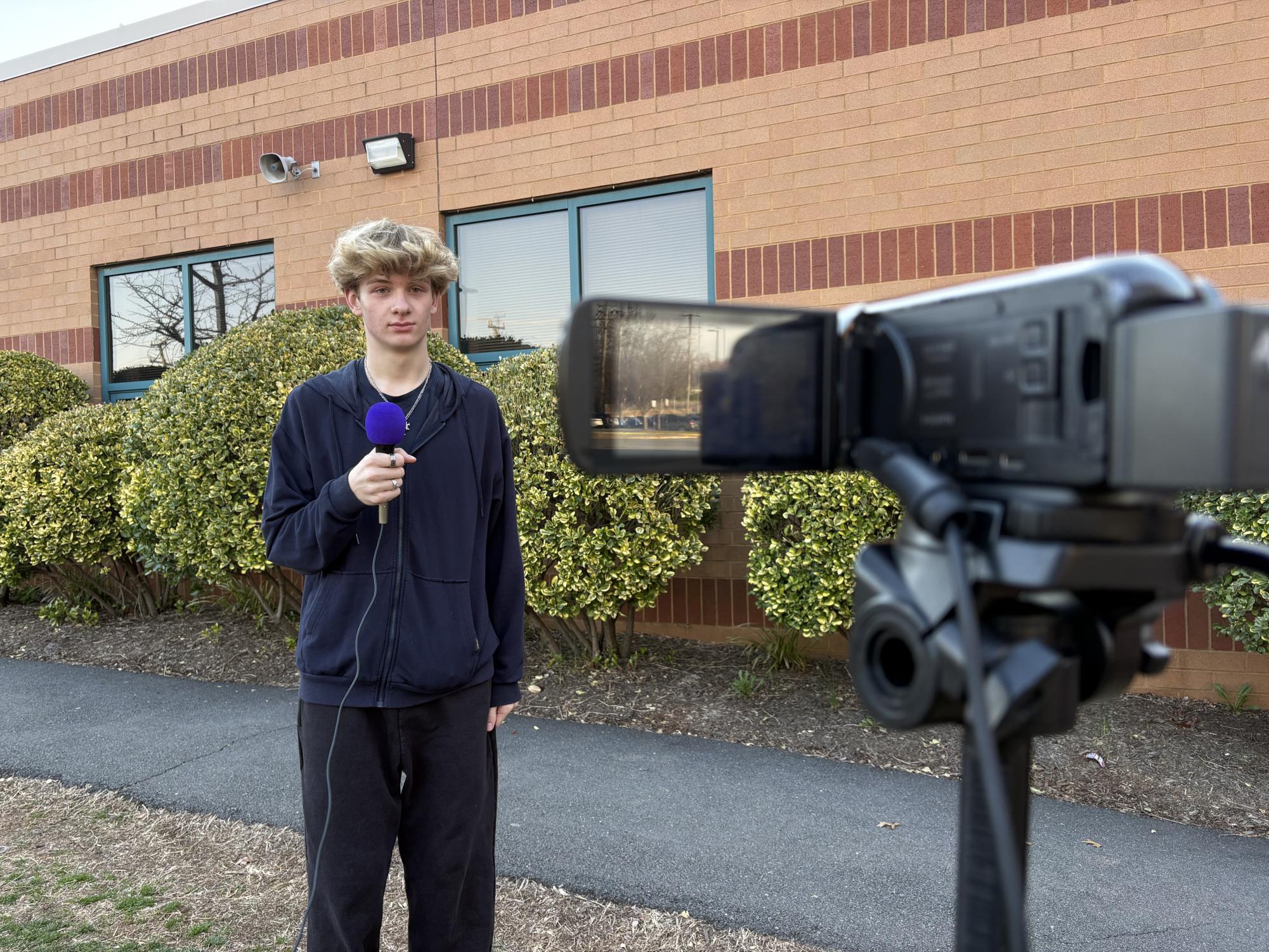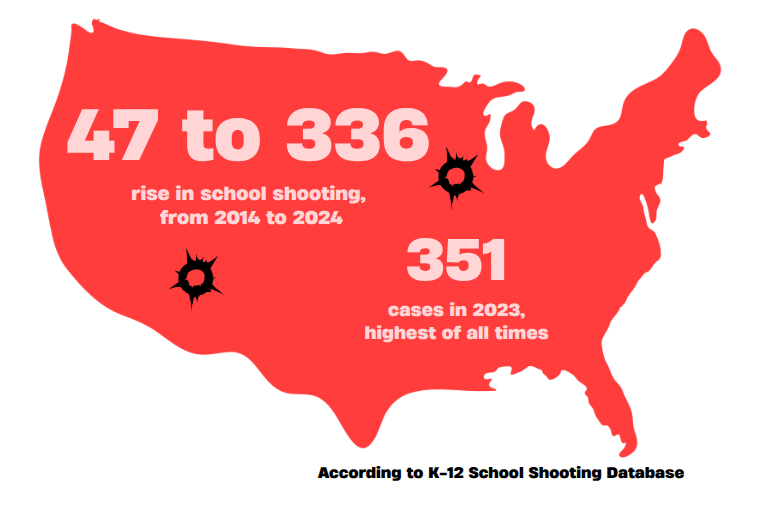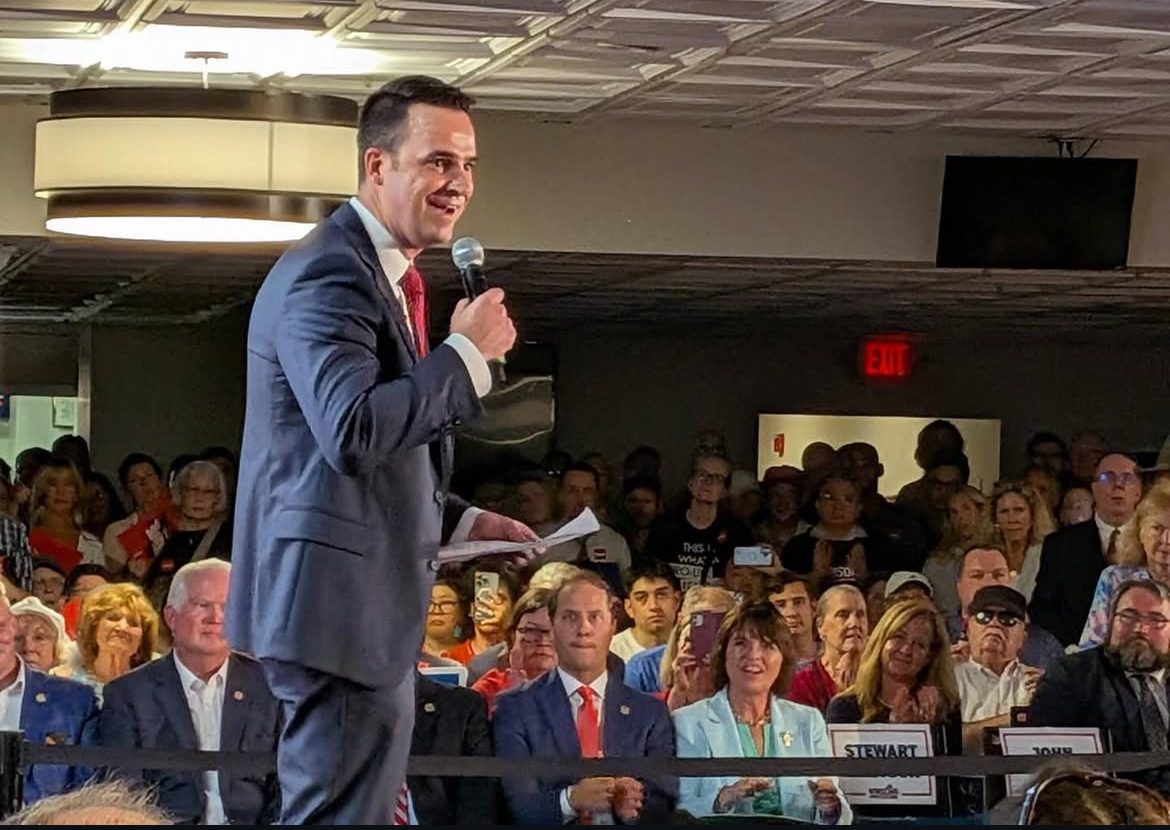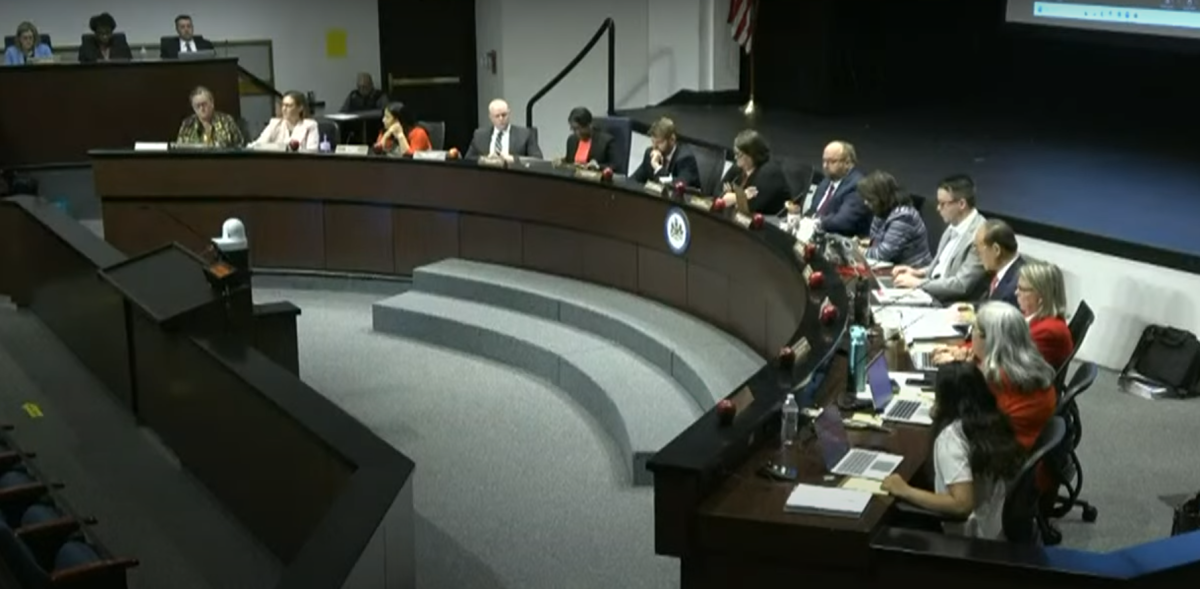FCPS officials thought they made no changes to the district’s policies regarding student press freedom when they released the Guidance for Student Publications (GSP). In the last four months, however, one little document caused a big reaction from the student journalists in the county.
The First Amendment Press Freedom Award (FAPFA) is issued by the Journalism Education Association, National Scholastic Press Association and Quill & Scroll. It recognizes high schools that have an administration and policies that actively honor and support the First Amendment and student publications that use this to report on controversial issues. Prior review is the administrative practice of reading and approving reporting by a student journalist before publishing; schools that utilize this practice cannot win the FAPFA Award.
Before the 2024-25 school year, CHS had won the FAPFA 10 years in a row, McLean for eight years and West Potomac for two. In a Feb. 27 email to past award winners in FCPS, however, the FAPFA Committee said that, as a result of the recent release of the GSP, which outlines how administrators can conduct prior reviews, all schools in FCPS were ineligible for the award. CHS and McLean instead received the FAPFA Commendation for schools that practice the Tinker standards of student expression in counties where prior review is possible.
Chief academic officer Dr. Sloan Presidio maintains that FCPS did not make any changes to its policy on student expression; it only expanded on the existing standards. Regulation 2612.8, which was last updated in 2016, requires faculty advisers of student publications, in partnership with the editorial board and principal, to create an editorial policy which may or may not allow for prior review.
“We did issue, as a school division, some updated guidance regarding student publications this past fall, but we developed that in response to some questions and concerns that we had from students and families regarding some issues in a couple different publications last year,” Presidio said. “All we were attempting to do with the guidelines is to make sure that all of our faculty advisers and all of our school administrators had an understanding of what the policies and regulations were. We didn’t change any of the policies and regulations, we just articulated in guidelines a little bit more information about how to implement those practices.”
For faculty advisers and student journalists, the county’s policies do appear to have changed. McLean journalism adviser Lindsay Benedict feels that, while the existing policy may have been too general, the county, in adding specificity to its policy, also made it more restrictive.
“It makes things more restrictive for students, for advisers, for administrators too, and I think it really comes down to how an administrator would interpret those guidelines,” Benedict said. “I think it really encourages administrators to be exercising prior review, to be concerned about these undefined controversial issues. I think that is the big shift, putting all these things in writing that passes that power onto administrators, and an administrator that maybe doesn’t really know about why that’s problematic could use that power to restrict students.”
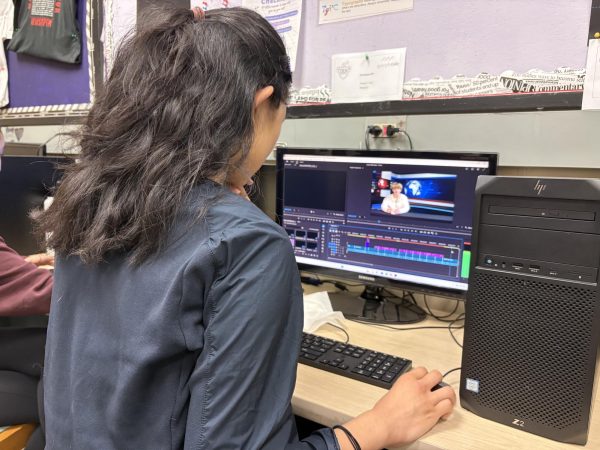
Because Regulation 2612.8 directs each school to develop its own editorial policy, the only standardization of press freedom across FCPS is outlined in the SR&R, which prohibits hate speech, threats or anything that could be substantially disruptive to the school environment. Nowhere in its policies or guidelines does FCPS take a position on administrative prior review. it explains how to utilize the practice, but does not encourage or discourage it.
“The county’s position just simply is that the school has to have an editorial policy that the student journalists have some input in developing in collaboration with the faculty adviser and the principal and that can look a little different from school to school,” Presidio said.
When the FAPFA Committee notified CHS and McLean that they would not receive the full award and instead earn a commendation, the email was forwarded to school board member-at-large Ryan McElveen. He shared the message with superintendent Dr. Michelle Reid, the rest of the school board and several high-level district officials, requesting they issue a formal apology to previous award winners and the student body as a whole.
“We were disappointed by that, because we felt like the organization that sponsors this award did not understand what our policy and guidelines are and we haven’t made any changes to our policies,” Presidio said. “So we didn’t understand that decision and we felt like it was made without having access to all the information and without any conversation with division administration.”
When CHS and McLean applied for the award, they provided their editorial policies, a link to regulation 2612.8 and the GSP. They included the caveat that staff was told they did not have to follow the GSP.
“The committee members read both the guidelines and board policy carefully,” the FAPFA Committee said in a March 16 email. “The guidance allows administrators to engage in prior review and make the final decision on controversial content. While we encourage student editors and their advisers to engage in open dialogue with their administrators about upcoming coverage, the editors should have the final say.”
Ultimately, Benedict would like to see FCPS roll back the GSP and maybe even establish stronger protections for its student journalists. Despite her concerns about the future of press freedom in the county, she says she trusts the student journalists of FCPS to report the news responsibly.
“I am so proud of the work that student journalists do every day and I would love to see them supported in that work,” Benedict said. “I think that the fear of what student journalists can do is unfounded. They are so motivated, they have such good intentions that when I hear people talking about why they should be restricted, it just seems so far away from the student journalists that I’ve worked with. I would hate to see that limited in any way.”


